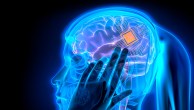
Highly religious Americans more skeptical of human enhancements such as brain implants, gene editing
Many Americans who are highly religious and identify with certain Christian traditions express discomfort with human enhancement.
Many Americans who are highly religious and identify with certain Christian traditions express discomfort with human enhancement.
Churches and other houses of worship increasingly are holding services the way they did before the COVID-19 outbreak began.
Most Black Catholic churchgoers are racial minorities in their congregations, unlike White and Hispanic Catholics – and Black Protestants
In recent weeks, protests in India over Muslim headscarves in schools have gained international attention.
Highly religious Americans are much more likely to see society in those terms, while nonreligious people tend to see more ambiguity.
Disagreements among Americans across the religious spectrum extend to personal issues, such as life priorities and gender roles in the family.
Self-identified Christians make up 63% of the U.S. population in 2021, down from 75% a decade ago.
Immigrants from sub-Saharan Africa tend to be more religious than U.S.-born Black adults or immigrants from the Caribbean.
A majority of Republicans along with a smaller but substantial majority of Democrats believe in heaven, hell or some other form of afterlife.
In the new survey, the Center attempted for the first time to pose some of these philosophical questions to a nationally representative sample of U.S. adults, finding that Americans largely blame random chance – along with people’s own actions and the way society is structured – for human suffering, while relatively few believers blame God or voice doubts about the existence of God for this reason.








